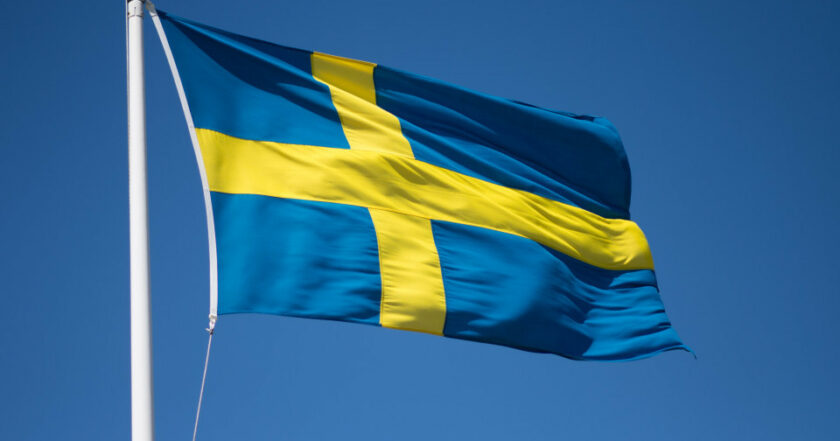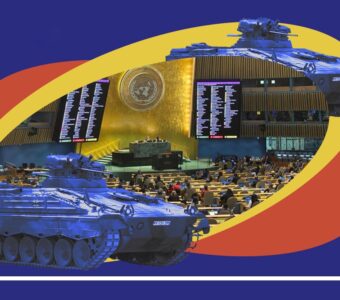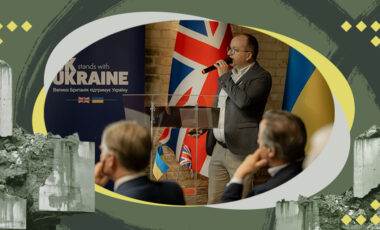Sweden taking over EU Presidency from Czech Republic

From January 1, Sweden assumes Presidency of the EU, replacing the government of the Czech Republic.
On the last day of 2022, the President of the European Commission, Ursula von der Leyen, thanked the Prime Minister of the Czech Republic for the fruitful presidency of the EU over the previous six months, Ukrinform reports.
"Dear Petr Fiala, congratulations on your successful Czech Presidency of the EU in 2022. Your leadership was instrumental in maintaining our EU unity and ambition on crucial files. From supporting Ukraine to addressing the energy crisis and in delivering on our EU Green Deal. Děkujeme mnohokrát," Ursula von der Leyen wrote on Twitter.
The Swedish Presidency of the EU completes the "EU trio presidency program," which was opened by France in early 2022 and continued by the Czech Republic. It was these two countries that faced the vital tasks and challenges associated with Russian aggression against Ukraine and its consequences, including the energy and food crisis, and the need to strengthen European security. Political, economic, financial, humanitarian and military support to Ukraine will also remain among the main priorities of the Swedish Presidency of the EU.
"Sweden is taking over the Presidency at a time when the European Union is facing unprecedented challenges. A greener, more secure and freer Europe is the foundation of our priorities," Prime Minister Ulf Kristersson said earlier.
As emphasized on the website of the Swedish Presidency of the EU, Russia's unprovoked invasion of Ukraine is a threat to all European security, which entails grave consequences in the field of migration, as well as for food and energy supplies around the world. Ukraine is fighting for its survival, for the safety and life of its citizens. The EU and its member states have already provided unprecedented assistance to Ukraine in this fight, and remain firm in this policy.
As stated in the program goals of the new EU presidency, Sweden has identified four key priorities for the next six months.
The first of them is "security-unity". As noted, the swift and decisive response of the EU to the invasion in Ukraine was a manifestation of its strength as a whole of the European Union, the ability of the member states to act together. The Swedish presidency will prioritize continued economic and military aid to Ukraine, as well as its support on the path toward the EU.
In this context, to strengthen the security of our Union and citizens, we must build consensus towards a robust European security and defence policy, in close cooperation with partners. Further steps will build on our common action to counter Russia's aggression towards Ukraine.
The second priority is "competitiveness." The Swedish EU presidency will pay the most urgent attention to the war in Ukraine and its short-term consequences. At the same time, due attention should be paid to the EU's economic growth prospects Europe's strength, resilience, and global standing depend on our economic output, which is closely linked to the single market and global trade opportunities. Such results will be achieved thanks to the development of free competition, private investments, and successful digital transformation.
As noted, the third priority of the Swedish Presidency of the EU is "green and energy transitions." The Swedish Presidency will continue efforts to tackle high and volatile energy prices while addressing long-term energy market reform. Europe must lead by example, by delivering on ambitious climate goals, boosting growth and competitiveness. At the same time, the Swedish Presidency emphasizes that Joint European steps towards independence from fossil fuels are necessary not only for the green transition, but for our security.
The fourth priority of the new EU presidency is "democracy and the rule of law – our foundation." The European Union is based on democratic values, paving the way for cohesion, individual freedoms, non-discrimination, increased economic output and global influence. Upholding the principle of the rule of law and fundamental rights is therefore an essential element of Sweden's – and indeed every – Presidency of the Council.
As already reported, since the Russian full-scale invasion of Ukraine, the EU has been providing meaningful political, economic, humanitarian, and military assistance to Ukraine. In 2022, the EU provided financial assistance to Ukraine in the amount of EUR 19 billion, which allowed for the state to function in wartime. In addition, for the first time in history, the EU allocated EUR 3.1 billion worth of direct military aid to Ukraine, the nation at the stage of active hostilities.
Also, for the first time in history, the EU activated the Temporary Protection Directive, which allowed millions of Ukrainians, mainly women and children, who were fleeing Russian shelling and missile attacks to be accepted in EU, and to provide them with basic social services, including medical care, access to education, and the right for employment.


















































